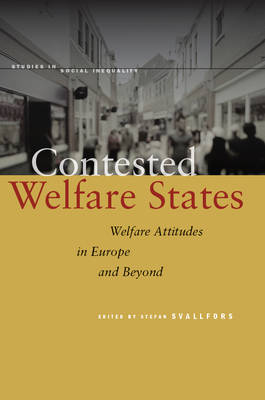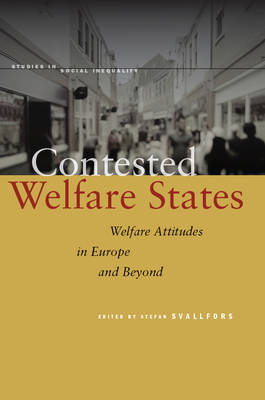
- Afhalen na 1 uur in een winkel met voorraad
- Gratis thuislevering in België
- Ruim aanbod met 7 miljoen producten
- Afhalen na 1 uur in een winkel met voorraad
- Gratis thuislevering in België
- Ruim aanbod met 7 miljoen producten
Contested Welfare States
Welfare Attitudes in Europe and Beyond
Omschrijving
The welfare state is a trademark of the European social model. An extensive set of social and institutional actors provides protection against common risks, offering economic support in periods of hardship and ensuring access to care and services. Welfare policies define a set of social rights and address common vulnerabilities to protect citizens from market uncertainties. But over recent decades, European welfare states have undergone profound restructuring and recalibration.
This book analyzes people's attitudes toward welfare policies across Europe, and offers a novel comparison with the United States. Occupied with normative orientations toward the redistribution of resources and public policies aimed at ameliorating adverse conditions, the book focuses on the interplay between individual welfare attitudes and behavior, institutional contexts, and structural variables. It provides essential input into the comparative study of welfare state attitudes and offers critical insights into the public legitimacy of welfare state reform.
Specificaties
Betrokkenen
- Uitgeverij:
Inhoud
- Aantal bladzijden:
- 272
- Taal:
- Engels
- Reeks:
Eigenschappen
- Productcode (EAN):
- 9780804782524
- Verschijningsdatum:
- 29/08/2012
- Uitvoering:
- Hardcover
- Formaat:
- Genaaid
- Afmetingen:
- 160 mm x 236 mm
- Gewicht:
- 521 g

Alleen bij Standaard Boekhandel
Beoordelingen
We publiceren alleen reviews die voldoen aan de voorwaarden voor reviews. Bekijk onze voorwaarden voor reviews.











